One Perfect Day: Interview with Executive Producer Phil Gregory and Sound Designer Paul Pirola
This interview was originally posted on DVD.net.au in 2004.
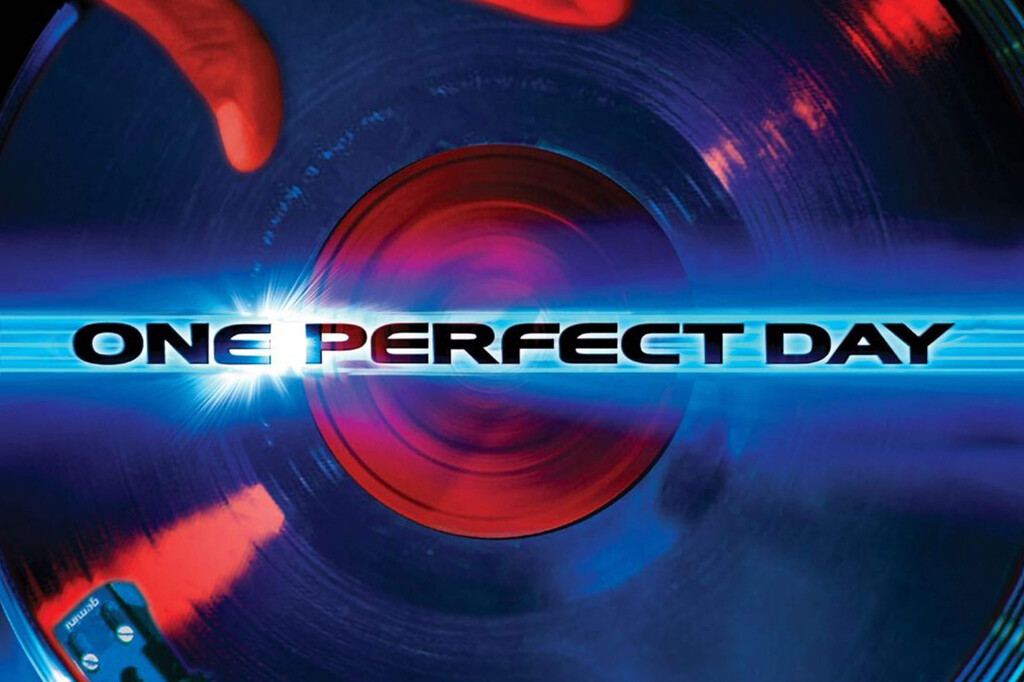
One Perfect Day is one of the most richly detailed and unique films to come out of Australia in recent years. The rave culture, let alone the Australian dance culture, is something that is often overlooked in films, with the odd film or two marking the total of the genre. While One Perfect Day is something much deeper than simply a film about the rave culture, it's based around the people involved with that culture, and our club-headed Marty Friedel took some time out with Phil Gregory, the Executive Producer, and Paul Pirola, the sound designer, from One Perfect Day to discuss the film and the upcoming DVD.
Dealing with rather heavy issues involving drugs, death and adult themes, One Perfect Day originally received a classification of MA by the Office of Film and Literature Classification. This decision was appealed, and won, reducing the classification to an M rating, creating a much wider audience. Gregory comments that "we felt that this was an inappropriate rating particularly given the nature of other films that I've seen in recent history that were rated M or PG that I felt were bloated wall to wall with gratuitous violence and yet here's a film that's more of a portrayal of real life and real life situations that was painted as a really dark story that got an MA rating. I just didn't think that there was relative fairness and of course an MA rating would mean that we wouldn't be able to get the film out as widely as we could, particularly to those under 15." Luckily in the appealing process, nothing was removed from the film.
Rated M for Death Themes and Drug Use, the world of drug culture seeps onto the screen, where younger minds can witness drug misuse and it raises the question of what influences such as One Perfect Day can do to these minds, even though this is definitely not a pro-drug film. Australian production company Lightstream Films, founded by Phil Gregory, Paul Currie and Charles Morton, have a philosophy of making films that portray real life stories with universal themes and accessible characters. Some may see One Perfect Day following in the footsteps of films such as 8 Mile carrying an anti-drug message, however this was not Gregory's aim. "What we wanted to make was a film that presented the real world, and a real world where people are going to be presented with choices and have the opportunity to make the decisions themselves and be equipped to make these decisions themselves," Gregory comments. "They choose to say 'yes' in certain situations and there are consequences with saying 'yes', and that's what the film deals with."
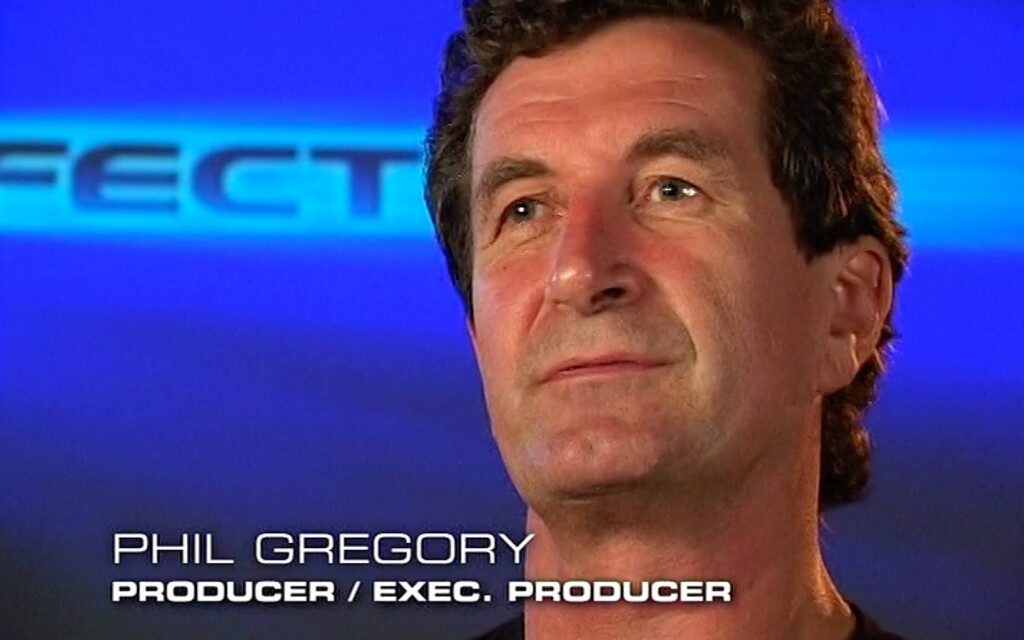
Obviously for a film containing drug use, there would need to be scenes involving actors under the influence of drugs. Four of the film's key characters, Alysse (played by Leeanna Walsman), Emma (played by Abbie Cornish), Trig (played by Nathan Phillips) and momentarily Hector (played by Andrew Howard), are under the influence at one point or another during the film, and one must ask, where does the "influence" come from? Gregory laughs, "it wasn't like they were going around taking pills just for the experience. They watched footage of other actors from programmes which showed the effects of drugs."
Now the words 'drugs' and 'Hector' lead on to another topic. Now if you've seen the film, then you would be familiar with Hector's chest-shaving scene, a scene which left a few audience members stunned, asking 'where did that come from?' "It just seemed like a good representation of a quirky social phenomenon," Gregory comments. "On one hand something quite light and humorous, but also an inside into the bizarre and twisted personality of Hector - vain to the extreme, but vulnerable at the same time. So it helped to depict his bizarre character on one level and also to provide a moment of levity."
Accompanying One Perfect Day's February 2004 release date was a promotion going hand-in-hand with Two Tribes, one of Australia's largest dance parties which saw huge international acts such as BT and Hybrid reaching Australian shores over the first quarter of 2004, too including Marty's home of Adelaide for the first time. Not only was this great advertising but also gave clubbers around the country the chance to party like in the scenes from One Perfect Day. Such extravagant and massive parties, such as those illustrated in One Perfect Day, required the staging of real parties, at the Salt Mines north of Melbourne, TranceZenDance and the at Kabuki 3.0, with the last including a performance by international DJ Paul Van Dyk. "When you have a party there's a very limited time where you will be able to re-shoot it," explains Gregory, "so a fair bit of pressure comes with having set up a real event and then being able to shoot the best quality footage in a limited amount of time. These are real events with a cast of a full audience. There's also something elevating about that - on one level the pressure, but on another something uplifting." The grand finale, starring between five and six thousand partying extras, was filmed in Melbourne between 11pm and 2:30am, just prior to Paul Van Dyk's performance, and was shot in several takes during that period. "We had just a few hours to get it absolutely right," remarks Gregory. "But even so, that's a pretty big deal with all the things that were going on, you know electricity problems, problems with projection - you had to get it right because we weren't able to go back next week and get another five or six thousand people there and do it again."
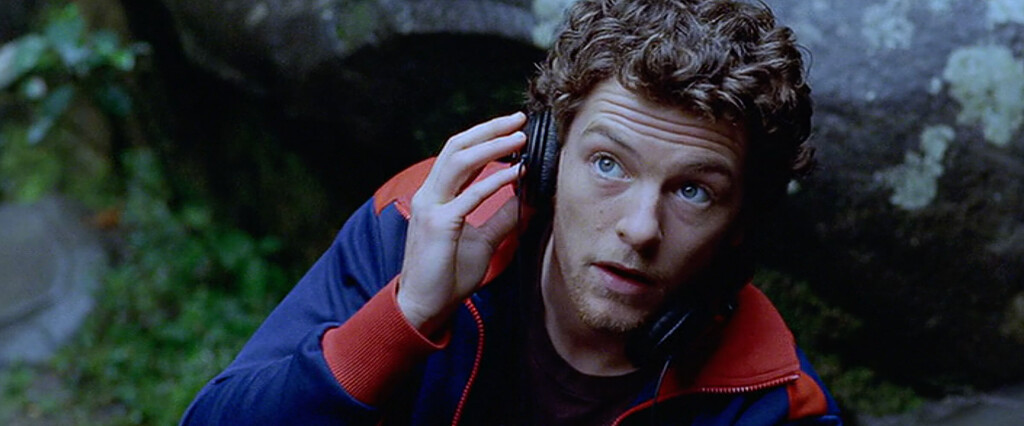
Tommy Matisse, a character in the film played by Dan Spielman, changes from a classical musician to a deck spinster, and it can be seen that these two genres are actually closer than they first appear, similar to how groups such as Orbital and Hybrid have shown us. As a requirement for his character, Spielman needed to be able to play the violin as well as play on the decks in front of an audience. "(Dan) trained with a guy called Nigel McLean to learn the violin, and had quite an aptitude according to Nigel, he picked up on it pretty quickly, and learned real DJ techniques from Richie Rich. It was pretty intense learning," adds Gregory.
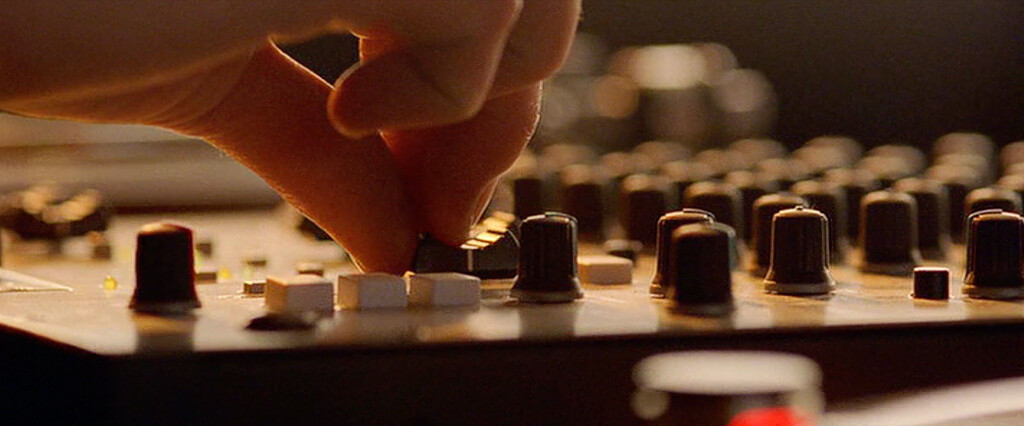
When watched in a well-built and well-mixed cinema, the 5.1 soundtrack is nothing short of amazing, leaving you breathless. With sound being such an important and vital character for One Perfect Day, the sound engineering needed to be precise and dedicated to providing the ambience and environment of some pretty intense situations. Gregory notes that "essentially it's a musical story - the story of a musical journey where music and Tommy's gift for sound is fundamental to the story line and from that very foundation it was essential that the sound was able to perform its own role in telling the story. I think that's the essence of it, equally as important as the dialogue, and supporting the dialogue in telling the story. In Tommy's world sometimes is the things he doesn't say but he hears."
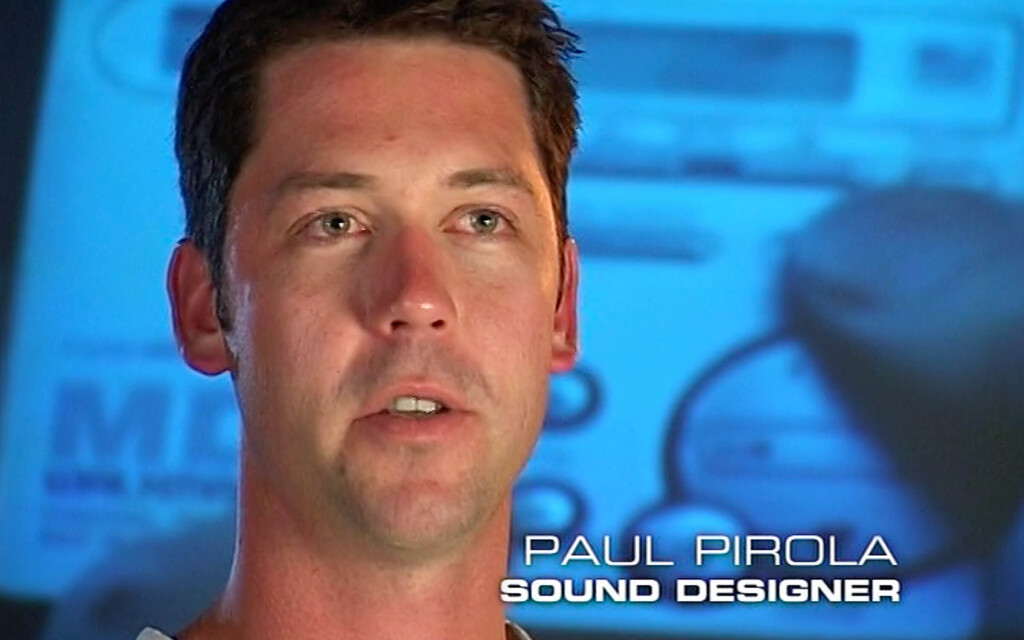
Paul Pirola, One Perfect Day's sound designer, comments that "there were certain aspects of the sound that have definitely been structured with the screenplay and the film's narrative, the whole concept of "Tommy Time", and that character's ability to hear things that other people take for granted - that sort of thing has definitely been structured into the screenplay, and in the original screenplay there was actually a lot more of that sort of stuff." Rather than leaving inspiration for sound design to the editing room, most of the ground work was done prior to production, with Pirola onboard from the beginning. "I have been able to have input on all aspects of the sound," comments Pirola, "so when we then went to the shoot we had a pretty good idea of what we wanted to achieve. Certain aspects of the sound needed to be constructed before they started shooting, so a lot of it wasn't an afterthought at all."
"In a way what we wanted to try to portray was a very good classical muso, very good at coming up with weird sounds, and then very good at that phase into electronic music, so in a way my experience really brought the sound effects to the film, and David Hobson, the classical composer, brought the classical elements and Josh Abrams brought a lot of the electronic elements. The three of us combined our skills and created the electronic soundscape," explains Pirola. The sounds that Tommy hears are those that others may simply overlook, such as a cricket's chirping slowed down. Gregory explains that this phenomenon is actually based on fact. "Someone compared the sound that they make with their life expectancy with comparison to humans, which is about 10,000 times shorter than a human being, and so slowed down the audio to match the life span, just to use this an example. Anyway, we tried this and that is what we heard and it was simply amazing - this rich choral sound. So that was embedded in the storyline because it was based on fact."
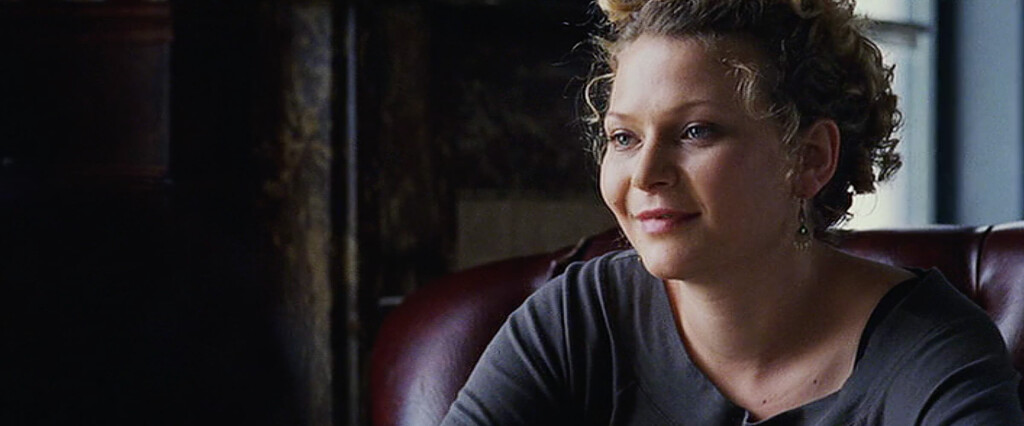
Accompanying a film looking at the clubbing culture is, obviously, a killer soundtrack. "The rave, or the dance music, most people experience in a stereo environment and we wanted to make it as much of a cinematic experience as possible and offer something that people might not have had the opportunity to experience before," says Pirola, "There's probably a few dance DVDs that are out that are made in 5.1 but we really wanted to push the 5.1 boundaries as far as we possibly could. So when all of the music was being put together there were artists all over the world doing the soundtrack and they always delivered us all of their components. So they would deliver us the percussion beats separate to the pads separate to the piano, so that kept the integrity of their mix but I was able to take that and spin it around the room or add sub-bass to just the beat trying to get a clean feel."
One Perfect Day succeeds admirably including plenty of rare and exclusive music in the film as well as on the 2-disc CD soundtrack. Scenes such as that which utilises Lamb's Gorecki work beautifully and seem too good to be true. When asked if the screenplay was built around "musical moments", Gregory commented that "tracks (that were) used in the film have been placed to give the strongest emotional beats to the story. So in the case of Gorecki it just fits that particular sequence beautifully." Gregory goes on to comment that "David Hobson's original score is essential to the whole film. There are threads of it in the beginning of the film which then, at the end, becomes a big collaboration with Paul Van Dyk. In that respect the score forms a bed for the musical journey.
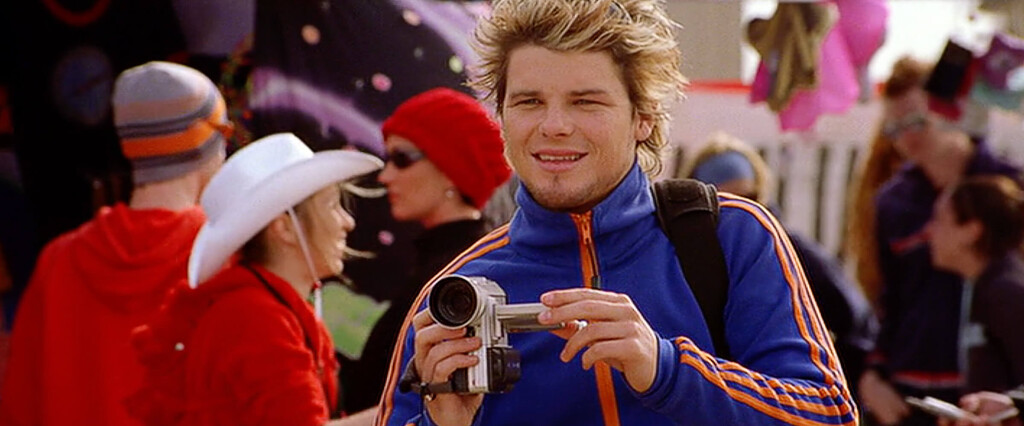
"It was always our intention as filmmakers at Lightstream Films to make films for the world really, not just films that would only ever really be seen in Australia, which a large number of films are to remain here as it has never been their ambition to travel, particularly in that comedy genre where its easier to explain local humour. This particular film has universal appeal to make it universally understandable with production values that are equal to those around the world. And that makes what you can do within the budget very difficult - we have an English actor in Hector, we shot in London, and music was one of the easiest things for us to use to create a fully international piece with such a broad palette such that we're able to tell the story.
"Lou's voice in 'Gorecki', for example, there is nothing like that in Australia, so we just had a wider template. I think it has added significantly to the appeal of the film being able to have a broader range of music to choose from, the broader range being international. It was a long, and at times quite arduous, journey, as most of it is unreleased or been recorded exclusively for the soundtrack, and Gorecki is not in that category, Gorecki is actually a licensed track. But the Robert Smith/Cure thing, Pictures of You, that was re-recorded by Robert and remixed by paulmac exclusively for the soundtrack, others such as Rob Dougan's powerful track One and the Same remixed again exclusively for the soundtrack. Then there is commissioned music for example Orbital, which really adds a "can't see anywhere else, can't get anywhere else" kind of value to the film.
"It enhances the experience and provides better value for money when they buy the soundtrack. We were a bit over the concept of having a compilation of licensed tracks which seems a bit common place, and in a way a bit of a cheap shot, with this being neither of these two," laughs Gregory. "Well we don't think so anyway. David Hobson did an amazing job too, venturing into a two year journey for David. He was constantly at it, and it became a real labour of love. One of the great moments of the film was watching the making of the film and watching when David Hobson and Paul Van Dyk meet in a studio for the first time, how quickly they found common ground, trying to work out how exactly they will be able to combine forces for the film and work on a collaboration."
One of the greatest problems faced with creating such an international compilation for a soundtrack is to do with licensing rights. "Some of (the tracks) are unreleased tracks which makes things very difficult. We went digging into libraries, and got in contact with management companies to get artists to agree to have their unreleased tracks included in the film. With normal licensing you would ring up a record company and organise a licensed track. But these tracks weren't even licensed so we had to draft up licensing agreements. It was just a matter of getting people engaged in the process. We needed to make sure that the artists, and ourselves, were happy with the music to have it go public. Some of this music is recorded but the artists don't want anyone to hear, or others just haven't found their place on a recording yet but they still wanted the track to be released."
Then there's the problem of being unable to score the rights to tracks that you desperately want to include. Gregory comments that "I thought that was going to be the case, but it wasn't in the end. I mean we tried some people but we weren't able to, however that was in the very early days. I mean I could talk about specific artists that we would have liked to have had, such as The Chemical Brothers, Faithless, Radiohead or Silverchair, but for various reasons you just couldn't get through to people - sometimes they were in the middle of 12 months of recording and weren't taking any calls, other people, in the case of Daniel Johns, he wasn't very well. But generally speaking we got as good as we could possibly have expected. We've been supported along the path by some great talent, and this journey has been very overwhelming and rewarding."
New recordings, such as those from Groove Armada, Paul Van Dyk and Fatboy Slim, were also acquired for the film. When asked what the process of acquiring these tracks was Gregory replied by saying "Firstly we had to make a connection with their management to make sure they were prepared and wanted to be involved in the project. And then with Paul Currie working with the artists it becomes a creative collaboration with the musicians composing the music as it needs to be able to deliver Paul's (Currie) vision both of the film and the scene for which it was made for. So it was a personal thing between the director and the musician, with FTPing used as the main global transportation network, with a fair few phone calls - a bit of a back and forth process, finessing and getting it right."
Lisa Gerrard, one of the most underrated Australian acts in Gregory's opinion, was signed up for vocals on the soundtrack. "Paul (Currie) approached her and they spiritually connected with the project," explains Gregory. "She connected with the story and what it was trying to achieve, as well as a vehicle for her." Gerrard's vocals can be heard on TV Screen Memories with composer David Hobson, as well as Orbital's One Perfect Sunrise, which will soon be available in a full nine minute version on their new album Blue Album.
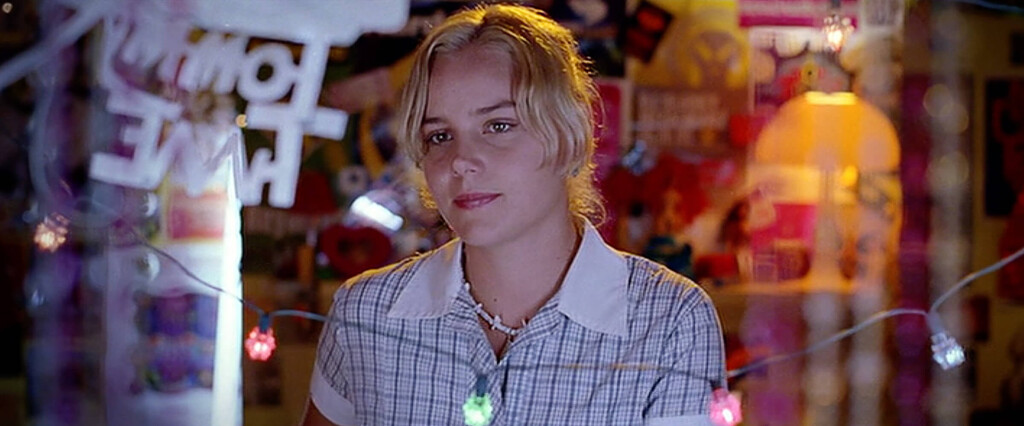
One of the common debates in the DVD world is to do with Dolby Digital vs. DTS. There is no better man than Pirola to ask about his preference to this debate. "Well from a practical point of view, (I prefer) Dolby Digital, because it appears on the film (print) and there are no extra discs that can get lost or misplaced. From a listening point of view, I have sat in a theatre with a film I mixed and switched between SDDS, DTS and Dolby and it is extremely difficult to hear a difference. There is perhaps something psycho-acoustically that I might perceive as being some sort of a difference, but I really strain to try to pick it up. That is at least in cinema. The algorithms for DVD are different to those in cinema, so with DVD I haven't actually sat down and A-B'ed, as the Dolby Digital algorithm is quite different and the quality on DVD is much higher than what goes out with a (film) print.
"When making a film there are licence fees to produce it in Dolby or DTS. And off the top of my head, the DTS is around $10,000," Pirola explains. "We looked into the number of cinemas that had only DTS playback capabilities compared with Dolby and it was felt that that money was better spent elsewhere. It would have had a bit more of a digital coverage if we did go DTS, but most Australian films only go out in Dolby. I'd like to think that if it did go to a Hoyts chain that did only have DTS that if we did supply DTS that it would actually make it there."
In preparation for the audio on DVD, Paul Pirola reworked the audio slightly to build a better soundscape for a home theatre. "Because the film is so loud I didn't really want to use any compression so I basically manually rode levels around to try to avoid any further compression, and just a little bit of EQ in some of the quieter moments to try to overcome the general domestic household noise," comments Pirola. "I actually burnt a copy myself and took it around to hi-fi stores and chucked it in heaps of different systems to make sure that it was suitable for all systems from the small little satellites to the bigger systems, so hopefully it will come up well."
The One Perfect Day DVD promises to be an absolute ripper following on from Chroma Media's stunning interactive website. "I think you can expect the Chroma Media people to be very involved in the production of the DVD and that the idea is to provide extraordinary value with behind the scenes, making of, interviews, outtakes, music from the film," explains Gregory. "We've certainly been producing all the way through the filmmaking process to be able to provide a fully featured DVD with as much rare appeal as the soundtrack has."